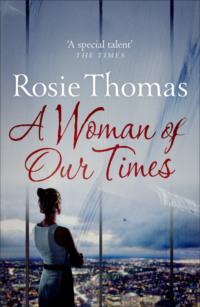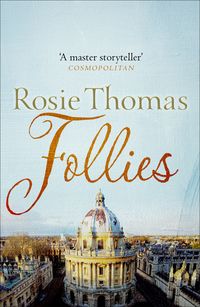
Полная версия
If My Father Loved Me
This meant nothing to me. I had never seen her before. She wasn’t one of the aunties. It occurred to me that it was her snuffle of laughter I had heard when Jack launched himself into his pigeon speech. ‘Thank you for coming,’ I murmured. ‘Would you like to join us for a drink, back at …’
But Audrey had already turned her attention to Jack. ‘And you’re his grandson. I liked what you said about him. You were quite right, Ted knew about things and it was one of the games he liked to play, not letting you know what he knew and then surprising you when you least expected it. Birds, or whatever it might be.’
Jack nodded, looking at her and sizing up the unwinking fox eyes and sharp fox faces that hung down over her bosom. I turned away because I had to speak to the undertakers, and when I had finished doing that and was ready to shepherd the last of Ted’s neighbours back to his house, Audrey was nowhere to be seen.
‘She went,’ Jack said and shrugged, when I asked him.
Ted had lived for the last seven years of his life in a red-brick terraced house in a side street within two miles of both the hospital and the crematorium. He liked to joke in his deliberately bluff, I-dare-you-to-be-bothered way about their convenient proximity. On my infrequent visits there I felt that, like all Ted’s places, it was too full of wedges of memory, bits of furniture or ornaments or even kitchen implements, that propped open doors of recollection and so let images back into the daylight that I would have preferred to remain in darkness.
After the crematorium, the neighbours and pub friends and Ted’s small family reassembled at this lumberhouse of inanimate memory triggers. Everyone came back, except the mysterious Audrey. Mrs Andrews had been in to air the rooms and do some dusting, and as a result the place looked tidier and emptier than it had done when Ted was alive. Caz and I had made an early-morning lightning swoop on Marks & Spencer’s and bought in enough finger-food to fill several trays. She worked her way round the guests with these while Graham and I followed with gin, Scotch or wine. We made it our job to fill and refill glasses as soon as they were half empty. The atmosphere lightened as people ate and drank, and then grew positively jolly. Jean Andrews’s cheeks turned pink and she told the Manchester cousins stories about growing up in Oldham. They tried to find acquaintances in common, without much success from what I could overhear as I passed by with my bottles.
The noise level rose. The pub landlord told a couple of jokes, on the grounds that they had been favourites of Ted’s, and everyone laughed.
Jack sat on the stairs and read a book while people trod past him on the way to the bathroom. He glowered when anyone tried to speak to him or congratulate him on his impromptu speech, particularly me. Lola’s tears had dried up. She moved between the groups, with the attention of one or two of the younger pub men fixed on her. She caught my eye once and winked. Caz and Graham still circulated with drink and food, and Mel just circulated. In the narrow room with Ted’s shiny brown furniture and faded curtains she seemed bigger than the rest of us, and Technicolored alongside our dark clothes and muted pastel faces.
After a while I glanced at my watch. It was well past the lunch hour and I wanted to look in at work before the end of the day because there was some urgent finishing to do. I raised my eyebrows at Graham, who is used to standing in for a husband at times like this.
When I called Tony to tell him that Ted was gone, he had said how sorry he was, then asked immediately when the funeral was to be.
‘Sadie, that’s the one day I can’t come. I’ve got to go to Germany for a big client meeting.’
I knew he would have come, if he possibly could. Tony is like that. He does the right thing. ‘Don’t worry. Graham and Caz will be there. We’ll organise it together.’
‘I know they’ll support you. But I’m truly sorry I can’t be there as well. Ted was my father-in-law for fifteen years.’
‘It can’t be helped,’ I said. I too would have liked Tony to be here today, for my own sake as well as Lola’s and Jack’s. But there was no point in regretting his absence now, or at any other time.
‘How are you?’
‘I’m all right,’ I told him.
‘And the kids?’
‘They’re here.’
‘I’ll talk to them. I’m thinking of you, Sadie.’
‘I know. Thanks,’ I said and passed the receiver to Lola.
When we were first divorced, Jack and Lola both spent plenty of time with their father. We had agreed on unlimited access and it worked well. But in the last five years, since Tony met his new partner and particularly since the birth of their twin girls, the weekend visits have become less regular. This is no one’s intention, it’s just that Tony has less time to spare for children who can already feed and dress themselves. Lola is fairly sanguine about it, but Jack minds.
Graham glanced around the room, judging the atmosphere. ‘A few words, maybe?’ he suggested to me in a whisper.
I cleared my throat and stepped into the middle of the room while he rattled a spoon against a plate.
I had no idea what I was going to say. I don’t remember what I did say, except that it can’t have been very inspiring. Everyone listened politely, anyway. I thanked them again for coming, and lifted my glass that had one and a half mouthfuls of red wine at the bottom of it. Luckily everyone else’s glasses were well charged.
‘To Ted.’
The echo began as a muted, respectful chorus. But the next thing I saw was the faces all around me breaking into smiles and there was a sudden little wave of clapping, and some stamping and cheering. Ted, Ted, Ted. Jack’s white face poked round the hallway door.
‘My father,’ I added to the chorus, but under my breath. It wasn’t my unmemorable words that had provoked this, of course. It was Ted himself and I was being made aware of his popularity for perhaps the last time.
I looked around the room again, searching for a synthesis between my knowledge of him and what all these other cheerful, rational friends and neighbours felt. There was his dented old armchair but even as I stared at it I couldn’t shift the cold wedge that separated my memories of Ted from everyone else’s.
I shook my head and looked for the faces of my children and my old friends. They jumped out of the gloom at me, full of warmth and life. Mel’s red lipstick. Caz’s hennaed bob, Graham’s bald patch and habitual anxious frown. And Jack and Lola, my flesh and Ted’s too.
This is what matters now, not then, I rationalised. History’s gone.
I found myself with my fingers wrapped round my now empty glass, fondly beaming back at all of them. And my smile must have been particularly noticeable because there was another surge of clapping and cheering. How Ted would have loved all this.
It was another moment before everyone noticed that they were involved in an outbreak of spontaneous celebration, but when they did the applause gently faded into shuffling and coughing. This was a funeral, after all. Still smiling, Jean Andrews began dabbing her eyes.
My short speech and the clapping were taken as the signal for everyone to make a move. Caz and Mel swept plates and glasses into the kitchen as Lola and I stood by the front door, thanking everyone all over again for coming.
‘If only he could have been here.’ Jean Andrews sighed as she squeezed into her coat.
Half an hour later Caz’s and Graham’s Volvo followed Mel’s Audi down the road. Lola and Jack and I were left standing on Ted’s doorstep. The children looked at me, waiting for a lead. I closed the door firmly, double-locked it and dropped the keys into my pocket. Memories were neatly boxed up inside it with Ted’s clothes in the wardrobe and the old tea caddy with the pictures of the Houses of Parliament rubbed away where his thumb always touched the same spot.
‘Let’s go home,’ I said.
In the traffic on the M1 Lola told me, ‘I think that went really well.’
‘Yes, it did.’
I flicked a glance in the rear-view mirror. Jack was sitting sideways with his feet up on the back seat and his head tilted against the passenger window. There was no telling what he thought.
It was after five o’clock when I finally reached work, but that didn’t matter. Penny and I are self-employed and we put in the hours to suit ourselves. Her house is the end one of a pretty Georgian terrace, but it’s East- rather than West-End Georgian. The houses themselves were once fine but have become dilapidated and even recent gentrification hasn’t improved the immediate surroundings, which are grimy, traffic-clogged and unsafe after dark. Not that that worries Penny.
I walked down a small cobbled alleyway past the side of her house, under a sign that reads ‘Gill & Thompson Fine & Trade Bookbinders’. The old brick outbuilding, backing on to a murky stretch of the Regent’s Canal opposite some gasometers, was one of the main reasons why Penny bought the house when we first set up in business together. It had originally been a coal depot, where the long barges down from the Midlands unloaded their cargo, but together we cleaned it up and – roughly – converted it into a book bindery.
That was what I did, and do. I am a bookbinder, in the way that Ted was a perfumer. But without the mystery, of course.
I opened the door into the shop part of the bindery. Across the counter that divides it from the workshop I saw Penny. She was standing over a stitched book, rounding out the spine ready for backing. She was using the little old Victorian hammer I found at a bindery sale and bought for her, and she rolled and banged away at the stitching to make exactly the right swell that would form the spine of the bound book. She was so immersed in the job that it took several seconds for her to register the sound of the door opening and closing. But then she looked up over her half-moon glasses and saw me. ‘Hi,’ she said.
I walked round the counter end and took my apron off its hook, winding it round my middle and tying the strings without looking or thinking about it, the actions being so familiar.
‘I’m glad that’s over.’
My job was lying at the end of my bench. The dark-blue cloth-covered book boards for Ronaldshay’s three-volume Life of Lord Curzon that we were restoring for a regular customer of ours. The finishing, the gold lettering on the spine, still remained to be done, ready for the bound books to be collected tomorrow.
‘Are you okay?’
I picked up the first boards and stroked the cloth with my thumb. It was a good job, clean but nothing flashy. ‘Yes.’
I opened the as yet unbound book and automatically checked the title page. Then I put the board in the holder and adjusted the screws to position it correctly.
Penny was still standing with her hammer resting on the bench. ‘You needn’t have come in tonight, you know. Not straight from your father’s funeral. I could have done Curzon.’
‘I know.’ I smiled at her. Penny’s a good finisher. ‘But I wanted to.’
It was the truth. The concentration on a defined job, technically demanding but finite in scope, was just what I needed. And the bindery, with its ordered clutter and smells of glue and skins, is a soothing place. I always find it easy to be there.
Penny nodded and went back to her tap-tapping with the hammer. I switched on the heating element in the Pragnant machine and reached for a drawer of type. I decided that I would do the title in two pulls, and then put the author’s name and the volume number together in the third panel. Using tweezers, I picked the type from the drawer, dropped the letters and spacers for The Life of one by one into the slot of the type holder and checked them. The characters have to be placed upside down and although I can read as quickly that way as the right way up, it is still too easy to make mistakes.
The work absorbed me. Penny and I settled into the easy silence that we often enjoy when we are on our own in the bindery. It’s different when Andy and Leo, our part-timers, are there. They like to play music and talk about the jobs in hand. It’s still comfortable, but different. Less symbiotic.
I measured the available space on the book’s spine with my dividers, then checked it by eye. However carefully and accurately the lettering is placed, if the result looks wrong to the eye then it is wrong. I put the board back on the stand and slipped the foil out of the way. I pressed the handle forward gently to make a blind pull, just an impression of the letters lightly tapped into the cloth that I could rub away if they were misplaced. When I examined the result I saw they were indeed in the wrong position. About a millimetre too high.
I sighed and clicked my tongue, and Penny heard me.
She glanced over her specs at me. ‘Let me do it.’
‘Pen, I want to do it myself.’
I rolled the bar down by what I calculated to be the right amount and did another blind pull. This time it was exactly right.
Even though this was a routine machine-blocking job that I had done many hundreds of times before, I still had to summon up some courage to make the gold pull. If I got it badly wrong there was no chance of a repair. The boards would have to be made and covered all over again, and with the margins Penny and I operate on, and the backlog of work waiting to be done, we can’t afford the time. I took a steadying breath and pressed the operating lever forward. The type kissed the blue cloth and I pressed harder, going in with a smooth bold movement, and the gold tape frazzled as the letters burned out of it. I eased the handle back and bent forward to see the result.
There it was, The Life of in strong, gold, block capitals on the dark-blue cloth. I’d gone in a little too heavy, perhaps, and laid on a touch too much foil, but I could fix that. I stood back in a glow of satisfaction.
However many times I do it, finishing always gives me the most pleasure of all the stages of binding a book. I love the shape and balance of the letters, and the grace and infinite invention that are possible within the conventions of traditional tooling and decoration.
‘Good,’ I said.
Penny finished her rounding and backing job with a final burst of tapping. She took off her glasses and ran her hand through her short hair with the result that it stood up on the top of her head like a grebe’s crest. I knew about grebes from one of Jack’s bird posters. ‘How did it go?’
What do you say about a funeral? ‘It was … well, processed.’
‘I know what you mean. Coffins on a conveyor belt. Mourners by numbers.’
‘A bit like that. Sort of next please! Jack made a speech, though.’
‘Did he?’ Penny was surprised, not surprisingly.
‘About pigeons. It was Ted who set off his interest in birds by telling him about the way pigeons live in London. He made a whole address out of it at the ceremony.’
‘I think that’s very appropriate.’
She was right. I was proud of Jack.
‘And then, at the drinks afterwards, everyone clapped and sort of cheered and tapped their feet when I made a toast to Ted.’
‘Ah.’
I took up the second cover and squinted at the panel where I would place the blocking. This second volume was thicker than the first and I would have to make an adjustment to positioning. I pinched at the spaces on the spine with my dividers, not wanting to expose my feelings to Penny.
She put her book in the press. It was a good edition of Keats’s Letters that we had restored and were going to rebind in full calf. Tomorrow she would paste a backing on the spine and cut the endpapers. I planned to hand-finish the leather binding with gold and blind tooling, the full works. It was a tasty job, as one of our old tutors at college would have said. If only we had a few more like it, as well as our regular bread-and-butter work of binding Ph.D. theses, law reports, photographers’ catalogue boxes and presentation Bibles.
‘I’m going to head inside,’ Penny said. ‘Evelyn’s going out and she wants me to give Cassie her tea and put her to bed.’
‘See you tomorrow,’ I said.
I made the pulls for the second and third volumes, using just the right pressure this time, then discarded the type and set up Lord Curzon. I loved the quiet in the bindery on evenings like this. Behind me, the tall window that looked out over the canal darkened and the pale struts of the gasometer supports briefly glowed like the skeleton of a spaceship.
If I was thinking about anything as I worked it was Penny. We had met as art students at Camberwell and had learned the principles of bookbinding together. We hadn’t a clue how to do the job, even when the course was finished, but we both went on to work in other binderies. I found a job as a very junior assistant to Arthur Bromyard, one of the great artist-bookbinders, while Penny went into a busy and aggressive trade bindery where most of the other workers were men. She was bullied there and responded by becoming even more superficially prickly and defensive than she had been at Camberwell. We stayed friends, just about, but she was scathing about what she regarded as my sheltered and arty-farty existence under Mr Bromyard’s gentle tutelage, and I thought she was wasting her talents banging out dozens of legal buckram-bound law reports day after day and standing up to the taunts of brutal men who didn’t understand her manners or motives.
I blocked in the rest of the title and the author’s name and the volume number on each of the three books, then laid out the results on the bench to examine them. The first pull had indeed been a bit too heavy. I took my little ivory-handled penknife out of my drawer and scraped very gently at the gold to loosen the excess. The penknife had once belonged to the Old Man, Anthony Phebus, who had given it to Ted. Years later Ted had handed it on to me, asking offhandedly if I could find a use for it, and I had discovered that it was good for just this purpose. I blew the dust away and rubbed my blocking lightly with a duster. Perfect, even though I had to pass the verdict myself. Within the constraints of time and resources, of course.
I found a paste tray and a roller, and briskly applied PVA glue to the boards. Once the books were glued into their finished covers I could go home. The sky against the window was completely black now.
Half an hour later I was placing the bound volumes in the old wooden press, neatly interleaving them with paper so the moisture in the glue didn’t cause any cockling, when the door opened again. I began turning the screw to tighten the pressure and looked to see who it was. I could hear running feet, but I couldn’t see anyone.
A second later Cassie burst round the corner of Andy’s bench. ‘Sadie! Sadie!’ she shouted.
Cassie was nearly three, the daughter of Penny’s partner Evelyn and a musician from Grenada. It was a year since the lovely but distracted Evelyn had left Jerry and brought herself and Cassie to live at Penny’s.
I had never seen Penny happier than she was with Evelyn. In fact, I didn’t think I had even seen Penny happy at all before, although there had been a series of women, even in her miserable days at the blokey bindery.
‘What are you doing here?’ I demanded.
‘Seeing you,’ Cassie yelled triumphantly.
I swung her off the floor and she sat astride my hip. She was wearing a zip-up fleece over Tellytubby pyjamas and smelled of warmth and soap. ‘Why?’
‘Because you are silly.’
I reached for my duster and dropped it over my head and face. ‘How about now?’
This was greeted with hoots of laughter. She twitched the duster off my face and rubbed her boneless button nose against mine.
I cleared a space on my bench and gently sat her down. I didn’t really like seeing Cassie in the bindery. There were too many instruments of harm in here, too many long-bladed knives and mallets and jars of glue and size. The sight of her anywhere near the big old hand-operated guillotine with its grinning, curved metal blade made sweat break out down my spine and in the hollows of my hands. I blew a raspberry against the back of her plump, pale-brown neck and told her to sit still.
I never worried about my own two when they were small the way I feared for Cassie. It was only when I got older and Lola and Jack didn’t need and certainly didn’t welcome my physical protection that I started to.
But Evelyn didn’t worry about Cassie either. She let her play on the bindery floor, where she chewed strips of discarded goatskin and banged her head on the iron legs of the guillotine. ‘Let her play, Sadie,’ she would say with a shrug.
Penny came in with a tea towel over her shoulder.
‘Pen …’ I began.
She held up her hands. ‘I know, I know. But she wanted to come and see you on her own. You’re here and I was watching her all the way.’
Penny was incapable of refusing Cassie anything. She loved the child with an absorbed, half-unbelieving passion. I loved her too; the familiar weight of a baby in my arms, the softness and tenacity and scent of her. I missed my own children’s infant selves – Lola was already overtaking me in the adult pecking order and Jack was angular and rejecting – and Cassie filled some of the space they had left empty. So she moved between the three of us women, bathed in the constant light of our adoration.
‘I’m just finishing,’ I capitulated. ‘Do you want to stay here with me, Cass, and then I’ll carry you up to bed?’
‘No bed.’
‘Yes bed.’
‘No.’
‘Yesyesyesyesyesyesyesyessss.’
‘We’ll see,’ she suddenly bargained and I could hear her mother’s sweet cajoling voice. Evelyn seemed other-worldly, but she always got exactly what she wanted.
After I had checked that Curzon was properly positioned and all the machines and lights were switched off, I hoisted Cassie into my arms again, locked up and followed Penny up the path to the back door of the house.
The ground-floor rooms interconnected and together they functioned as kitchen, living area and bindery office. There were books everywhere, and newspapers, heaped up on battered but good-looking furniture. Penny’s rooms had always looked the same, in whichever of her houses, but since Evelyn’s arrival there had been some changes. She had feng shui’d the place as soon as she moved in, shifting the position of the table, lining up chairs and introducing frondy plants and scented candles. It was funny to see her Hello! magazines alongside Penny’s London Review of Books.
Penny was sitting at the computer making up invoices. This was usually my job.
‘I’ll do those tomorrow.’
I put Cassie down and she immediately ran away and hid.
‘Sade, will you tell me why you’re rejecting all offers of help and sympathy?’
I played for time. ‘Am I?’
I felt fraudulent, that was why. I had hardly cried yet for Ted and I couldn’t map even the outlines of what his loss meant to me. What could I look for from my friends, when I couldn’t locate my own grief? All I felt was numb, and exhausted to realise that my relationship with my father wasn’t going to end with the mere fact of his death. It was going to go on and on, for ever, the old disabling argument between love and bitterness.
Penny sighed. ‘Never mind,’ she said gently.
‘Shall I put her into bed?’ I asked.
‘Yeah. Tell her I’ll come up in a minute.’
I found Cassie behind the sofa, her usual hiding place. She let me carry her upstairs to her bedroom, on the second floor next to Penny’s and Evelyn’s. It was at the back of the house, and looked out over the bindery and the gaunt ribs of the gasometers. I drew the curtains, dark-blue ones with gold stars, and turned on the man-in-the-moon nightlight.
‘Time to go to sleep now.’
‘Lie down too.’
I slid under the duvet with her. She put her thumb in her mouth and began winding one of her curls round her forefinger. Lying there with my arms round her and her breath on my face, I felt some of the sadness melt away.









